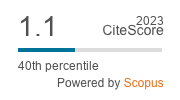Malaysian Journal of Mathematical Sciences, December 2019, Vol. 13(S)
Special Issue: Conference on Mathematics, Informatics and Statistics (CMIS2018)
Empirical Performance of a Model-Free Volatility against the Different Option Strike Size Discreteness
Harun, H. F. and Abdullah, M. H.
Corresponding Email: [email protected]
Received date: -
Accepted date: -
Abstract:
This study investigates whether the different step size of option strike price discreteness contributes to the performance of a model-free variance in approximating the real-value volatility. The volatility is proxied by the volatility implied by the Black-Scholes-Merton option pricing model. We concentrate on examining the respective relationship governing the function of approximation error against the strike price step. A sample data extracted from DJIA index options data is used, which covers the period from January 2009 until the end of 2015. This study finds that the best strike price step size that asserts the most minimum approximation error by practice is a step size of $1.00. There exists a linear relationship between strike price discreteness size and approximation error. The choice of the different step size of strike price discreteness is in fact contributes to the performance of a model-free variance in approximating the real-value volatility.
Keywords: model-free, options, strike price discreteness and volatility









